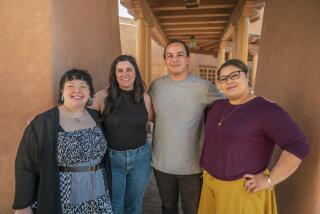HUNTINGTON BEACH : Golden West Nabs 2nd Math Grant
- Share via
Golden West College has captured its second grant this year from the National Science Foundation, bringing to $94,000 the foundation’s awards to strengthen the mathematics department and the teaching of calculus, college officials said this week.
The NSF last month approved $36,000 for a pilot project at the college aimed at developing computer programs to simulate complex mathematical concepts that can be difficult for students to conceptualize, Golden West spokeswoman Lori Thomas said.
The mathematics department was awarded a $58,000 matching grant in May to buy computer software that will aid calculus and pre-calculus students in the classroom. Golden West’s grants adviser Kathryn A. Crown said she has raised $10,000 in matching funds from the Educational Foundation of America. She is seeking another $45,000 in private grants to match the NSF award.
Crown said it is rare for a community college to get any grants from the prestigious science agency and that it is a measure of the increasing national emphasis on early and higher quality science and mathematics instruction.
“To get two National Science Foundation grants is a rather extraordinary event,” Crown said. “Before, unless we had a nationally known instructor here, we wouldn’t have been considered.”
But with fewer American students entering the science and mathematics fields, especially teachers who can produce the next generation of scientists and mathematicians, agencies such as the NSF are putting their funds behind programs aimed at increasing the pool of potential science majors.
“(NSF officials) are beginning to realize that the majority of college students start in community colleges,” Crown said. “Generally, the emphasis has been at the other end of the spectrum, in graduate research. Now, the emphasis is on getting qualified people to go into the sciences.”
The latest grant project to receive NSF funding goes to a team headed by Golden West mathematics professor David Horowitz. The team’s goal is to use computer simulation to deal with such abstract concepts as linear equations and harmonic motions.
The earlier grant goes to a team led by mathematics professor Jack Wadhams, who said the goal is to better prepare calculus students for mathematics and science courses at four-year colleges.
More to Read
Sign up for Essential California
The most important California stories and recommendations in your inbox every morning.
You may occasionally receive promotional content from the Los Angeles Times.










